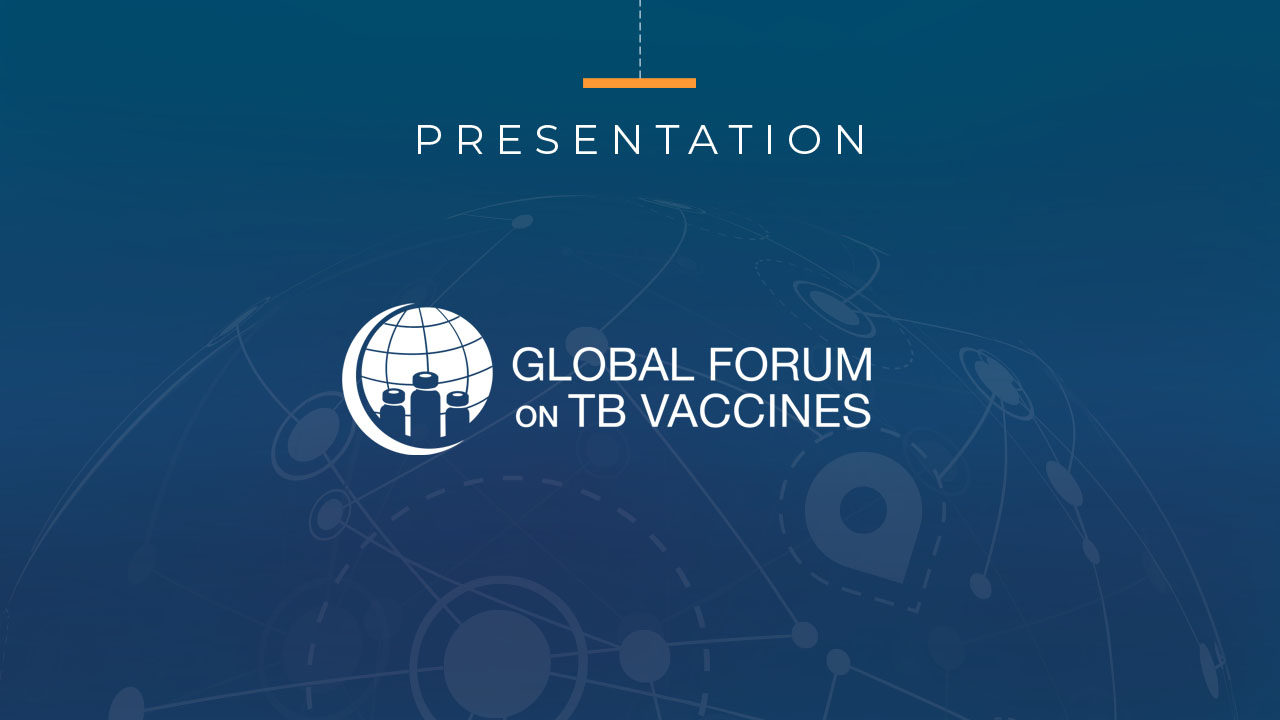Identifying high TB-burden areas with eligible, treatment-naïve populations is critical to rapid enrollment, enhanced participant diversity, and timely completion of TB vaccine trials. However, we are challenged by the simultaneous development and administration of TB preventive therapy (TPT) as well as varying levels of research capacity in these areas, which often have limited resources. The current process of protocol design first, followed by identifying TB-prevalent areas for site selection, is like trying to fit a square peg in a round hole.
Would an approach that engages clinical operations, epidemiology, and other experts early, during protocol design, be more efficient and help ensure the proposed development plan can be implemented within the target populations? Join this plenary session to hear how this strategy could unfold using real-world epidemiology data, site capacity data and biosurveillance methodology.
Register for the event today and join us for the discussion.
About the Presenters

Vice President, Global Strategy
FHI Clinical
With more than twenty years of experience in clinical research monitoring and management, Ghiorghis Belai serves as FHI Clinical’s Vice President, Global Strategy. In this role, Belai is responsible for managing FHI Clinical’s relationships with sponsors and sites, and he works on project feasibility to ensure optimal implementation of trials.
Belai previously served as Director of Clinical Operations for FHI 360, where he managed the clinical research unit based in Nairobi, Kenya, while supervising and mentoring the FHI 360 Africa Regional Clinical Research Unit. In this role, Belai was responsible for reviewing study protocols, coordinating study implementation of multi-center and multi-country trials in Africa, and ensuring that studies adhered to protocol requirements and applicable regulations and guidelines.
With a background in clinical research, Belai has also worked as a clinical research associate for PharmaNet Development Group, Inc., and PPD, where he participated in multiple multi-center clinical research studies, assisted with project data clinical review and management, and presented at investigator meetings for assigned studies. In addition, Belai monitored sites according to applicable standard operating procedures and Food and Drug Administration guidelines and reviewed case report forms for adherence to protocol requirements.

FHI Clinical Scientific Advisory Expert
Founder and Principal Scientist, EpiPointe
Dr. Falgunee Parekh is Founder and Principal Scientist of EpiPointe, a woman-owned small business focused on the development and implementation of clinical research studies for various infectious and emerging diseases including malaria, dengue, Zika, brucellosis, Lassa fever, influenza and tuberculosis. She has led the development of field epidemiology studies and clinical trials for vaccines and interventions targeted at infectious diseases in international settings including South America, South Asia, West and East Africa and former Soviet Union countries. Her research interests focus on assessing the epidemiology and immunologic factors associated with severe disease versus protection and how this informs the development and testing of vaccines and therapeutics against infectious diseases. She also currently serves on the leadership committee for the Global Health Security Agenda Consortium.

FHI Clinical Scientific Advisory Expert
Dr. Jon “Ben” Woods is a pediatric infectious disease physician and retired United States Air Force Colonel. Before supporting FHI, he was President of HJF Medical Research International (HJFMRI), a subsidiary non-profit of the Henry Jackson Foundation for the Advancement of Military Medicine. Prior to HJFMRI, he was Senior Antimicrobial Resistance (AMR) and Tuberculosis Technical Advisor to the Global Health Bureau at USAID. He has broad US domestic and international infectious disease clinical, programmatic and research experience spanning over two decades. His experience ranges from directing the US Army’s medical research field station in Kisumu, Kenya, overseeing pediatric malaria vaccine trials and infectious disease surveillance, serving as the Defense Intelligence Agency’s lead Medical WMD Advisor and Subject Matter Expert (SME) for design of their deployable microbial forensics laboratory, to supporting investigational new drug (IND) applications for emerging and biological warfare threat agents and running the biosafety level-4 (BSL-4) treatment facility,while at the US Army Medical Research Institute for Infectious Disease (USAMRIID) at Fort Detrick, Maryland.
Dr. Woods received his Doctor of Medicine degree from the Uniformed Services University of the Health Sciences (USUHS), completed residency training in pediatrics at Wright Patterson Air Force Base Hospital/Wright State University and his fellowship in pediatric infectious diseases at the USUHS, where his research focused on animal models of enterohemorrhagic Escherichia coli disease.


